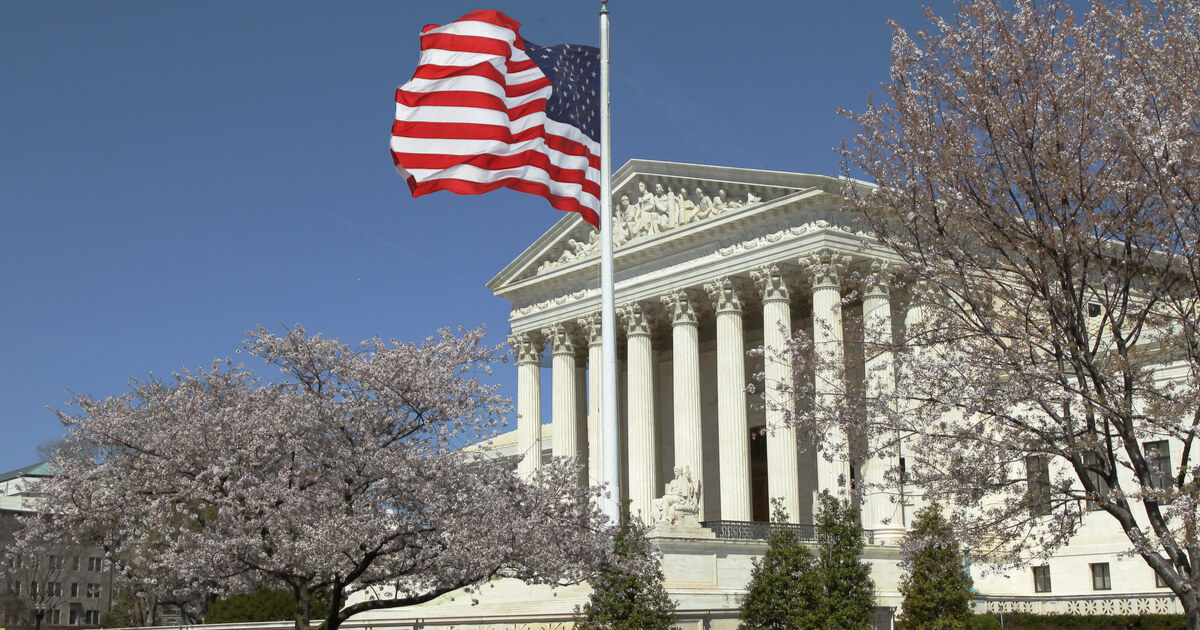
The California Trucking Association recently suffered a setback in appealing an unfavorable ruling to the U.S. Supreme Court that disrupts long-held owner-operator practices.
Known as AB5, a California law redefines how truckers work as independent contractors, forcing them to sign on as employees. U.S. Solicitor General Elizabeth Barchas Prelogar, appointed in 2021 by Pres. Biden, urged the U.S. Supreme Court to deny the trucking advocacy organization their appeal. The move strikes a significant blow to owner-operators in California as the Solicitor General’s recommendation has traditionally been considered persuasive.
“Although the circuits have reached differing outcomes with respect to FAAAA preemption of the ABC test as codified under the laws of various states, those case-specific decisions do not create a conflict warranting this Court’s review,” the Solicitor General reportedly stated in its brief. “Moreover, the interlocutory posture of this case and the need to resolve a threshold issue of state law — namely, whether motor carriers and owner-operators may fall within the business-to-business exemption under California law — make this case a poor vehicle in which to address the question presented. Further review is unwarranted.”
Owner-operators and entrepreneurial-minded CDL holders who lease equipment would effectively be banned from self-employment should the high court accept the Solicitor General’s position and deny judicial review. The California law went into effect in January 2020, but the California Trucking Association won an injunction exempting truckers, after sustaining an expected defeat in the Ninth Circuit Court of Appeals.
“Although the SG’s brief is very influential and often tracks the Court’s ultimate determination, the ultimate decision remains with the Court and takes four Justices to vote to hear the case. Nevertheless, this is not a positive development in the effort to reverse the Ninth Circuit opinion,” Transportation law firm Scopelitis, Garvin, Light, Hanson & Feary reportedly stated. “CTA and the State of California have fourteen days to file supplemental briefs responding to the SG’s brief. The petition will be considered by the Supreme Court at its next conference at least fourteen days from today. Given the timing, it is possible that the petition will not be considered before the Court recesses for the summer at the end of June, in which case the next currently scheduled conference is October 6.”
Some in the trucking industry are crying foul over the Solicitor General’s opinion. The Biden Administration has largely agreed with California employment laws and indicates a preference for unionized labor. The administration’s political position has some concerned the Solicitor General’s position involves bias.
“It’s no surprise to anyone that the Solicitor General would submit a brief only organized labor would applaud. This is an administration that is a proponent of the PRO Act that would essentially federalize AB 5,” Joe Rajkovacz, director of governmental affairs and communications for the Western States Trucking Association, reportedly said. “Many of the Justices will be aware of this dynamic, and the brief can be basically ignored by a majority. Only four Justices have to agree to take the case. That’s about the only good thing to this brief is now this is wholly in the hands of the Justices whether to grant or deny.”
The potential delay prompted by the filing and timeline for the California Trucking Association to respond may be something of a blessing for owner-operators. Legal experts indicate that independent truckers face a coin-toss at the high court. The state law includes a clear test to determine the difference between an employee and a third-party contractor. Uber and Lyft drivers were able to secure an exemption from AB 5 through a statewide referendum.
Sources: ccjdigital.com, freightwaves.com, landline.com, fmcsa.dot.gov











It’s time for a new paradigm! Owner Operators should be cheering this decision because the current system makes you a GLORIFIED EMPLOYEE! You should be allowed to have multiple leases, conducting business with several companies, choosing which loads you accept to fit your schedule. As a Model Example, look at Manufacturers Reps. By IRS Regulations, to be an Independent Contractor, you must be able to represent any number of Manufacturers, develop your own business plan, and execute your own decisions.
Today’s Independent Contractor in the trucking business is controlled by the Corporation to which they are leased. If you run under your own authority, but only leased to one company, technically you are not independent.
Drivers, if the OOIDA were interested in your success, they would be fighting for this position.